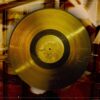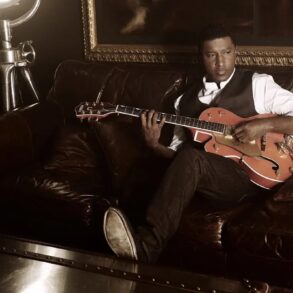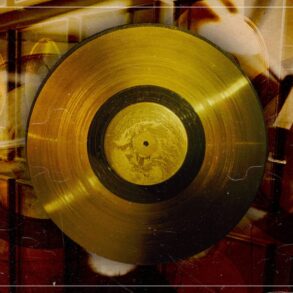Most musicians, at one time or another, think, “Gee, it sure would be fun to work at a music store.”
I was one of those people. During the mid ‘80s, after moving to Kansas City on the promise of a radio gig that fell through, I found myself employed as a guitar salesman at one of the town’s heritage music stores. While things hadn’t worked out as planned, I figured, “Hey, it could be worse.” As it turned out, they were the best of times, and they were the worst of times.
The best part? I spent every day surrounded by guitars, amps, drums, keyboards and PA systems. I could play with anything I wanted, and I could even take stuff home with me, under the pretense of “learning more about the gear.” Pretty sweet, I thought.
But after the first couple of days, I realized that I could quickly go broke in this new job. It was, as they say in the trade, a “sell or starve” situation, meaning that we got paid zero unless we sold something.
With funds being scarce, most of the sales force would head down the block to a seedy Asian restaurant (fondly referred to as “The Running Dog”) which featured a $3.99 “all you can eat” buffet comprised of questionable offerings. Nevertheless, the “to go” option was attractive, since four bucks could, if provisions were properly rationed, take care of both lunch and dinner. The catch was that the lid on the Styrofoam container had to close completely. The proprietor, an elderly but keen-eyed woman, monitored container closure with a laser-sharp focus. “You must close! You must close!”
The best part of the job was my coworkers. They were, for the most part, fine people who were, through no fault of their own, creative types. Meaning that they were, to put it politely, quirky. There was the guy who resembled early-years David Letterman and, not being one to suffer fools, once asked a difficult customer, “Does the phrase ‘blow it out your ass’ hold any special meaning for you?” Not to mention our counter guy, who would deal cocaine from his position behind the register, frequently combining the purchase of some guitar picks with that of a half-gram bindle.
A gentleman walked in one day and asked our keyboard specialist where we kept the “digital sympathizers.”
tweet this

As mentioned, this all took place during the ‘80s, when every hair-farming guitar player had a travel-size can of Aqua Net hairspray in the case so as to maintain maximum coiffure volume during gigs. Many metal musicians also took to wearing tight, stretchy “girl jeans.” One night, our sales manager and one of the sales guys were at a club checking out a new band. Gazing across the room, the sales manager spied a potential conquest facing the bar. His target sported a huge spray of curly blonde hair and skin-tight britches. “Damn,” he said, gesturing with his beer, “Look at the ass on that chick.” After a pause, the sales guy said, “Uh, that’s Bill Miller (not his actual name).” After another pause, the sales manager shrugged and said, “Well, it’s still a nice ass.”
Photo by Doug Marks. Creative Commons.” class=”uk-display-block uk-position-relative uk-visible-toggle”>

Pointy guitars were big during my gear-selling years. So was the hair.
Not much was secret around the store. During a sales meeting (when the conversation often wandered off-topic), one of the salespeople told the rest of the staff that he was in trouble after giving his girlfriend a case of the crabs. Everyone laughed until he said that, as far as he could tell, he picked up the annoying crustaceans from the store’s public restroom. This was, of course, an improbable explanation for his condition, but the staff’s psychosomatic itching continued for days.
Adjacent to the store was a bar called Johnny’s. The proprietor was an older gent who had lost a leg during World War II and was legendary for once taking off his prosthesis and beating a rowdy customer with it. The staff would often gather there after the store closed and engage in “battery battles.” These were contests in which two guys (women would not have been stupid enough to do this) pressed the terminals of fresh nine-volt batteries against their tongues, with the winner being the one who held the battery in place longest and the loser buying the next round.
Because we made no money if a customer did not make a purchase, many of the guys were hyper aware of how they budgeted their time on the sales floor. No one wanted to waste a half hour on some clown who was just a tire-kicker or didn’t have sufficient funds to pull the trigger on a deal. A gentleman walked in one day and asked our keyboard specialist where we kept the “digital sympathizers.” Quickly sizing up the situation, the salesman asked, “So how much do you have to spend on this digital sympathizer?” The reply was, “About $100.” The salesman thought for a moment and said, “Pal, why don’t you take your $100 and go party.”
Did I get to meet any famous people? Yes, occasionally musicians of note would visit the store. Right before Christmas, Brian Setzer from The Stray Cats came in looking for a small practice amp to give as a gift. Setzer is a traditionalist, but all I had to sell him was a Peavey, which was not considered a primo piece of gear. Setzer was polite while I held forth on the merits of Peavey’s solid-state technology versus time-honored tube power, but finally he cut me off in his distinctive Long Island drawl with, “Thanks, but I was looking for a Fender.” (Pronounced “Fin-duh”).
Mike Score, the lead singer for Flock of Seagulls, would stop by from time to time when he was in town visiting friends. For the record, he did not have his hair sprayed into place as it was in the video for “I Ran.” When he was not on the job, it just hung there lank and limp.
One day, several members of The Cars showed up, parking their limo on the sidewalk a few feet from the front door. All was going relatively well until a Car pulled a guitar off the wall (disregarding the sign requesting that customers ask for assistance), plugged into an amp, and cranked up to an ungodly volume.
A salesman who had just returned from lunch and was not yet aware of our famous visitors came around the corner and asked (not very politely), “What the hell do you think you’re doing?” When the guitarist informed him that he was in The Cars, the salesman replied, “I don’t give a damn. You need to follow the rules.” The Cars left in a huff and did not buy anything on that day. Or any other.
After working at the store for a while, I was given the opportunity to assist in its marketing efforts. One of our promotions involved an in-store guitar clinic conducted by (then) young shredder Vinnie Moore, who played classical Vivaldi arpeggios on an electric guitar, really fast and really loud. After the clinic, the store’s general manager and I took Vinnie out to dinner. As the dessert and coffee came out, he reached into his shirt pocket and said, “If you’re interested…” In his hand was a small, folded piece of paper that I assumed (again, it was the ‘80s) might contain cocaine. No, it wasn’t blow. It was, in fact, a paper football. Like we made in fifth grade. So we played for a few minutes while finishing our coffee. I lost.
This post was originally published on this site be sure to check out more of their content







